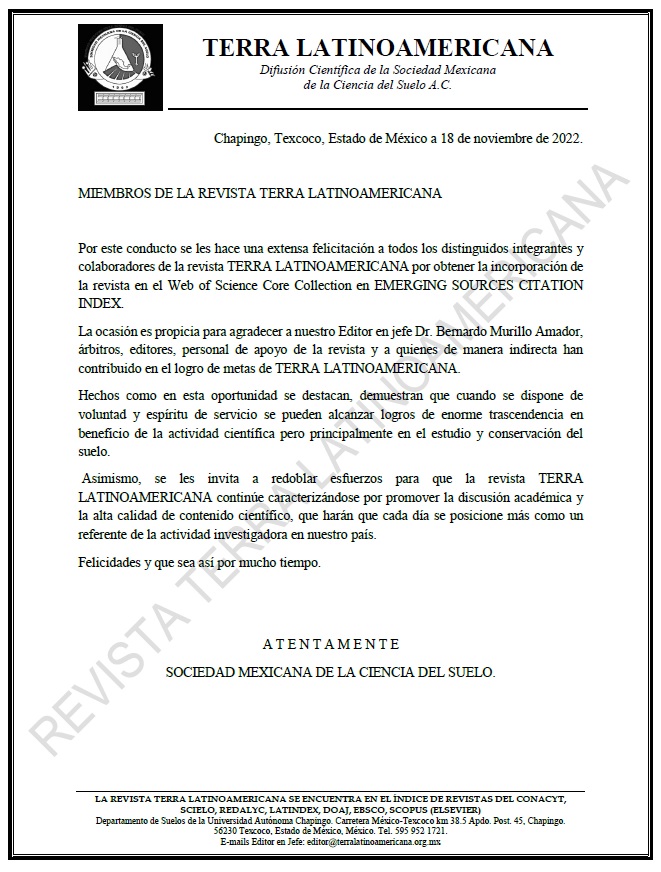Analysis of the eff iciency of the cow-calf system in Mexico
DOI:
https://doi.org/10.28940/terra.v40i0.941Keywords:
data analysis, economic efficiency, technical efficiency, total efficiency, productivityAbstract
Enveloping data analysis is a technique that allows productivity to be analyzed in terms of relative eff iciency, eff iciency, quality, and economy to solve the productivity of production systems. The objective of the research was to analyze the economic and technical eff iciency of 13 representative units of production (URP) cow-calf in Mexico through The Enveloping Data Analysis (DEA) to test the hypothesis whether URPs with a larger production scale are more eff icient than those of lower production scale and the amount of ineff iciency. The production scales of the URPs were 35 to 500 cows in production and located in the f ive main producers of the cow-calf system. The most economically eff icient URPs were TM70, TM100 and VE150; with higher JA35 technical eff iciency and higher overall eff iciency JA35, CH40, TM70, TM100 and VE150. The average economic eff iciency was 73.7±18.2%, the technique 44.6±27.4% and total 87.1±16.6%, meaning that URPs can increase their economic eff iciency by 18.2%, technical eff iciency 55.4% and total efficiency 16.6%; to have the most eff icient URP productivity. In addition, using either input provided the same total eff iciency parameters. Therefore, producers of the cow-calf system in Mexico have their greatest opportunity for growth and development by improving technical parameters; although they can also do so, but to a lesser proportion, with economic parameters
Downloads
Publication Facts
Reviewer profiles N/A
Author statements
- Academic society
- Terra Latinoamericana
- Publisher
- Mexican Society of Soil Science, C.A.

















